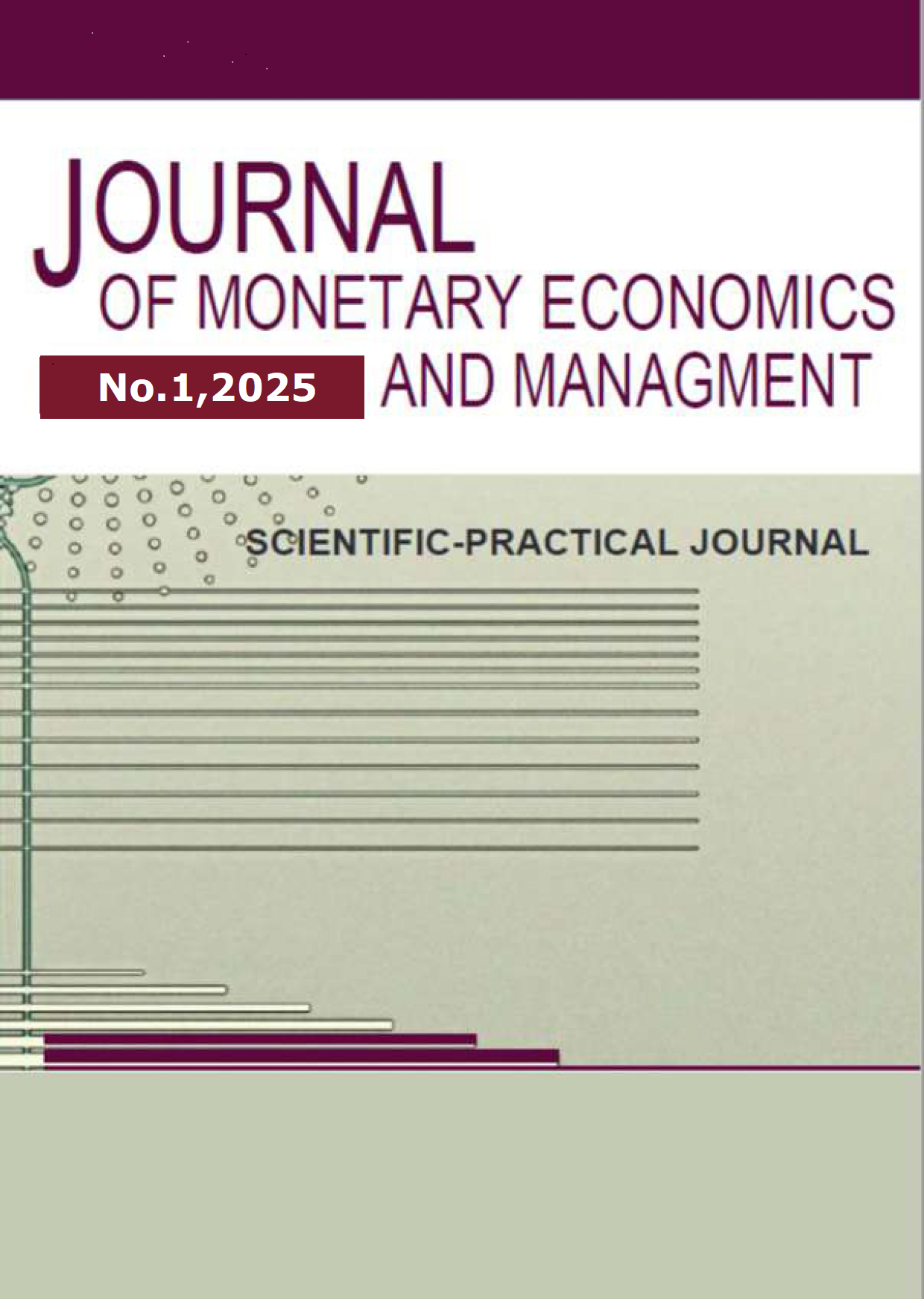employee
employee
employee
employee
The presented work examines the impact of digitalization on business models and their transformation due to modern realities. Various approaches to defining the concepts of digitalization and knowledge economy are considered, disagreements in the formulation of definitions and approaches to them by various scientists are identified, and the relationship between these processes is established. Traditional business models and business models arising from the emergence and implementation of innovative technologies, their specificity and differences are described. Possible challenges and risks facing businesses, determined by the specifics of the use of digital technologies, as well as possible ways to reduce them are described. The results of the study suggest that modern conditions force enterprises to transform business models, expanding their capabilities, increasing competitiveness and flexibility, which is especially important in a rapidly changing environment.
digital economy, digitalization of business, digital transformation of business, business models, digital platforms
1. Shlychkov V. V. Ob otdel'nyh aspektah processa cifrovizacii i opredelenii ponyatiya "cifrovaya ekonomika" // Vestnik ekonomiki, prava i sociologii. 2018. № 4. S. 95-99. URL: https://www.elibrary.ru/item.asp?id=36687385 (data obrascheniya: 21.12.2024).
2. Ivanov, A. V. Cifrovaya religiya // Izvestiya Saratovskogo universiteta. Novaya seriya. Seriya Filosofiya. Psihologiya. Pedagogika. 2018. T. 18. № 4. S. 377-381. URL: https://www.elibrary.ru/item.asp?id=36774205 (data obrascheniya: 21.12.2024).
3. Mulina N. A. Posledstviya vliyaniya cifrovizacii na obschestvo // Nauchnoe mnenie. 2020. № 6. S. 59-66. URL: https://elibrary.ru/item.asp?id=43175752 (data obrascheniya: 21.12.2024).
4. Kuznecov N. V. Transformaciya obschestvennogo vzaimodeystviya v usloviyah cifrovizacii // Teoriya i praktika obschestvennogo razvitiya. 2019. № 3 (133). S. 12–15. URL: https://www.elibrary.ru/item.asp?id=37101953 (data obrascheniya: 21.12.2024).
5. Lazar M. G. Cifrovizaciya obschestva, ee posledstviya i kontrol' nad naseleniem // Problemy deyatel'nosti uchenogo i nauchnyh kollektivov. 2018. № 4 (34). S. 170–181. URL: https://www.elibrary.ru/item.asp?id=36809545 (data obrascheniya: 21.12.2024).
6. Osipova A. S., Kabalina V. I., Mondrus O. V. Praktiki privlecheniya i otbora talantlivyh sotrudnikov v ekonomike znaniy i tradicionnyh otraslyah // Organizacionnaya psihologiya. 2018. T. 8. № 4. S. 39-74. URL: https://www.elibrary.ru/item.asp?id=36997721 (data obrascheniya: 21.12.2024).
7. Bekbergeneva D. E. Podhody k soderzhaniyu i tochki rosta ekonomiki znaniy v cifrovizacii regional'noy ekonomiki // Ekonomika i biznes: teoriya i praktika. 2020. № 3-1. S. 27-29. URL: https://www.elibrary.ru/item.asp?id=42689657 (data obrascheniya: 21.12.2024).
8. Tolkovyy slovar' «Innovacionnaya deyatel'nost'». Terminy innovacionnogo menedzhmenta i smezhnyh oblastey. URL: https://innovative_activities.academic.ru/58/Biznesmodel' (data obrascheniya: 21.12.2024).
9. Kuznecova N. A., Pukach G. V., Pukach A. M. Problemy adaptacii biznes-modeley k menyayuscheysya srede // Ekonomicheskie otnosheniya. 2019. № 2. S. 1363–1370. URL: https://www.elibrary.ru/item.asp?id=39191667 (data obrascheniya: 21.12.2024).
10. Orehova S. V., Bausova Yu. S. K voprosu o fenomene biznes-modeli // Sovremennaya konkurenciya. 2020. № 1 (77). S. 58–75. URL: https://www.elibrary.ru/item.asp?id=42783926 (data obrascheniya: 21.12.2024).
11. Tis D. Biznes modeli, biznes strategiya i innovacii // Chetvertye Charnovskie chteniya. Sbornik trudov. Materialy IV mezhdunarodnoy nauchnoy konferencii po organizacii proizvodstva. Moskva, 5-6 dekabrya 2014 g. M.: NP «Ob'edinenie kontrollerov»; Vysshaya shkola inzhenernogo biznesa, 2014. S. 386-438. URL: https://www.elibrary.ru/item.asp?id=23186850 (data obrascheniya: 21.12.2024).
12. Nikitaeva A. Yu., Kiseleva, N. N. Rekonfiguraciya biznes-modeley promyshlennyh predpriyatiy: vektory povysheniya ustoychivosti v novyh realiyah // Vestnik Volgogradskogo gosudarstvennogo universiteta. Ekonomika. 2021. T. 23. № 1. S. 110-120. URL: https://www.elibrary.ru/item.asp?id=45598358 (data obrascheniya: 21.12.2024).
13. Schlecht L., Schneider, S., Buchwald, A. The prospective value creation potential of Blockchain in business models: A Delphi study // Technological Forecasting & Social Change. 2021. No. 166. P. 120601. DOI: https://doi.org/10.1016/j.techfore.2021.120601 (data obrascheniya: 21.12.2024).
14. Kiel, D., Arnold, C., Voigt, K.-I. The influence of the Industrial Internet of Things on business models of established manufacturing companies – A business level perspective // Technovation. 2017. No. 68. P. 4–19. DOI: https://doi.org/10.1016/j.technovation.2017.09.003 (data obrascheniya: 21.12.2024).
15. Sayt kompanii “Kasperskiy”. URL: https://www.kaspersky.ru/safe-kids (data obrascheniya: 21.12.2024).
16. Stahel W. R. The circular economy // Nature. 2016. No. 531 (7595). P. 435–438. DOI: https://doi.org/10.1038/531435a (data obrascheniya: 21.12.2024).
17. Vatutina L. A., Zlobina E. Yu., Homenko E. B. Cifrovizaciya i cifrovaya transformaciya biznesa: sovremennye vyzovy i tendencii // Vestnik Udmurtskogo universiteta. Seriya «Ekonomika i pravo». 2021. T. 31. № 4. S. 545-551. URL: https://www.elibrary.ru/item.asp?id=46407441 (data obrascheniya: 21.12.2024).
18. Garifullin B. M., Zyabrikov V. V. Vidy biznes-modeley kompaniy v cifrovoy ekonomike // Kreativnaya ekonomika. 2019. T. 13. № 1. S. 83-92. URL: https://www.elibrary.ru/item.asp?id=37028074 (data obrascheniya: 21.12.2024).
19. Kopylova A.A. Ekonomika znaniy kak etap razvitiya postindustrial'noy ekonomiki// Aktual'nye voprosy sovremennoy ekonomiki. - 2020.- № 6.-S.297-300









